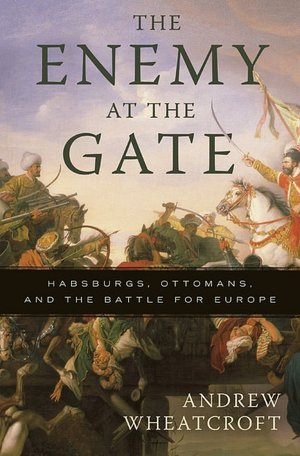The Janissaries were an elite infantry of the Ottoman Empire. In the siege of Vienna in 1683 the most elite of them formed the shock troops for the assault. If one of them wrote of the summer campaign, it might read like this:
First we marched 1000 miles.
When we got to the outskirts of Vienna, we made camp. The camp was very large because in addition to our elite Janissary corps there were very many cavalry and other troops gathered from all over the empire.
As the summer wore on, the camp became dirtier and more polluted. There was more and more sickness. I got sick too. Food got scarcer as the supply lines were overstretched and as the ability of our foraging parties to find food from the surrounding area got worse, the foraging was exhausted.
Most of our time was spent digging trenches approaching the city fortifications. If it rained, the trenches got muddy. From time to time the defenders of the city would sally forth and try to kill us.
Some of us spent time tunneling in order to place mines under the fortifications. The defenders dug counter tunnels and when they were successful, blew up our miners. Sometimes the mines we placed blew up early, killing the sappers.
Artillery kept firing the entire time we were in camp. They shot at us, and we shot at them, each seeking to destroy the enemy fortifications, destroy the enemy's morale, and kill the enemy.
When we succeeded in breaching the defenses, I was sometimes part of a "forlorn hope" attacking through the breach seeking to force and entry into the city. It is called a forlorn hope for a reason. As we advanced, we were subject to artillery fire from the surrounding fortifications. When we got to the breech, we were met by the elite force set to defend the breach. They would shoot at us with bow and arrows and with musket fire. They would use grenades, and if we got that far, there would be a hand to hand battle with saber and lance. We never succeeded in forcing an entry.
Finally a relief force from Christian Europe appeared from an unexpected part of our flank, and our troops were defeated after a pitched battle. We ran.
The following cavalry killed a lot of us, but eventually reduced their pressure as we retreated.
Then we walked 1000 miles back to Istanbul. Unfortunately there was not very much food and we were often hungry. Lots of us were sick. People kept attacking and picking off stragglers.
I was lucky to live to tell the tale.
The Enemy at the Gate: Habsburgs, Ottomans, and the Battle for Europe by Andrew Wheatcroft tells the story of the siege, but doesn't really deal with the experience from the point of view of the foot soldiers who did most of the suffering and dying. Still, it was possible to read through the story of the "movers and shakers" responsible for these events to see the absolute horror of the experience of the foot soldier. Of course, the Janissary who succeeded in some act of great and conspicuous gallantry and survived received great honor, advancement and even wealth, but many died, often of illness but also in battle, and even for those who survived the experience must have been truly awful.


No comments:
Post a Comment